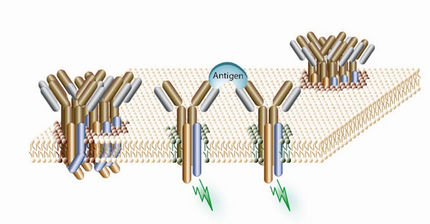Researchers discover metabolic vulnerability in TB and potential drug target
Advertisement
Tuberculosis (TB) has been present in humans since ancient times. The origins of the disease date back to the first domestication of cattle, and skeletal remains show prehistoric humans (4,000 B.C.) had TB. The cause of tuberculosis is Mycobacterium tuberculosis (Mtb), a slow-growing aerobic bacterium that divides every 16 to 20 hours. Scientists know that carbon metabolism plays a significant role in the ability of Mtb to replicate and persist in the body and that fatty acids are the major source of carbon and energy during infection. However, the specific enzymes required for the metabolism of fatty acids have not been completely defined.
New research conducted at Weill Cornell Medical College and published in the Proceedings of the National Academy of Sciences (PNAS) sheds light on a previously unrecognized aspect of fatty acid metabolism that could potentially lead to new targets for drug therapy. A team led by Dr. Sabine Ehrt, professor of microbiology and immunology at Weill Cornell Medical College, reported that Mtb relies primarily on gluconeogenic substrates for in vivo growth and persistence, and that phosphoenolpyruvate carboxykinase (PEPCK) plays a pivotal role in the growth and survival of Mtb during infections in mice, making PEPCK a potential target for drugs that fight tuberculosis.
Dr. Ehrt and her colleagues found a way to silence the gene encoding PEPCK in Mtb during mouse infections to assess the importance of gluconeogenesis for Mtb's ability to maintain a chronic infection. According to Dr. Ehrt, "Silencing a gene when the pathogen is not or only slowly replicating, after an infection has established, is an important tool for studying diseases such as TB, which can be dormant for years only to become active again years later."
Dr. Ehrt, the lead author on the paper, conducts basic research on the pathogenesis of tuberculosis. She and her team investigate the role of the macrophage in the immune response to Mtb and the molecular mechanisms used by the pathogen to establish and maintain persistent infections. A goal of Dr. Ehrt's research is to validate novel drug targets that may facilitate the development of new therapies against active and chronic TB.
"Tuberculosis is very difficult to treat," says Dr. Erht. "It is especially challenging as the infection can lay dormant in the body even though there are no symptoms. We investigated the metabolic requirements of Mtb during acute and chronic infections and found that the gluconeogenic enzyme PEPCK is critical for both."
The study used a novel mass spectrometry-based metabolic profiling tool, developed at Weill Cornell (in collaboration with Agilent Technologies) by Dr. Kyu Rhee to biochemically examine Mtb carbon metabolism. The tool has provided the first direct insights into the metabolic architecture of Mtb. Dr. Rhee is a co-author and assistant professor of medicine, microbiology & immunology, and the Hearst Clinical Scholar in Microbiology & Infectious Diseases at Weill Cornell Medical College.
















































